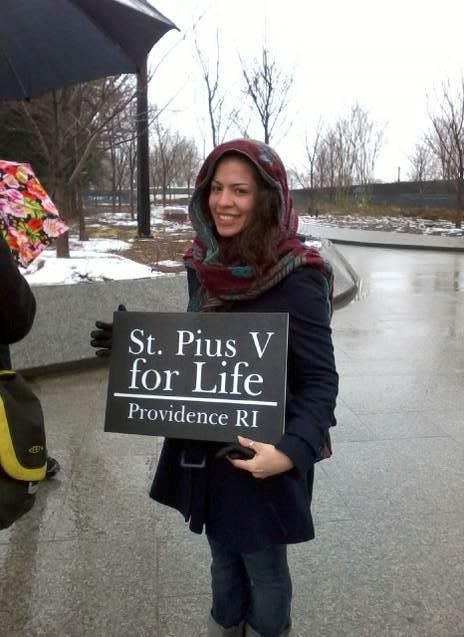Getting compliments on your personal belongings takes on a whole new meaning when you’re about to get rid of everything you own. In recent months I’ve made more than one loose acquaintance — including my doctor — very uncomfortable when I eagerly asked, “Do you want it?” after they told me they liked something I was wearing.
A good friend who is also hoping to enter religious life this summer put it so well: getting rid of your belongings in preparation for religious life is like standing on a precipice looking into eternity with everything that has always distracted us suddenly behind us. There’s nothing left: just me and the Great Unknown. In fact, as he pointed out, everyone will end up at this moment at some point in their lives, we’re just getting there a little earlier.
I keep running back to that scene in the Gospel, when the rich young man asked Jesus what he must do to inherit eternal life. He has kept all the commandments, but he knows there’s something more. And Jesus looks at him, loves him, and says, “You lack one thing; go, sell what you have, and give to the poor, and you will have treasure in heaven; and come, follow me” (Mk. 10:21). The young man’s reaction — going away sad because he had many possessions — has always broken my heart. In the past few years especially I’ve found myself wanting to shake him. You’ve just been offered the world, I want to shout at him. How can you walk away?
But here I am, faced with a similar invitation, and every day there’s a little twinge. That little porcelain boat from the Dollar Store my sister gave to me for Christmas back in 1991 — it’s a silly trinket, but I’ve carried it around for years, and I admit to a tremor at the thought of letting go. The baby blanket my five-year-old self used to use as a royal robe when playing dress-up … my books and my piano … so many of things we take for granted, right down to the use of that comfortable word, “mine.”
Yes, even letting go of “my” friends is proving to be a lot harder than I ever expected (and I never fooled myself that it would be easy).
God doesn’t ask any of us for halves. That’s what I’m facing in so many concrete ways right now. When he asks us for everything, he means everything. (And by the way, he asks all of us for everything.) He pushes us past the point of comfort, even past discomfort, to that place where the tears start and we cry, “But I can’t!”
This isn’t relegated to those of us discerning religious vocations. We’re all called to this. It’s part and parcel of the Christian life, dare I say, of being human. When you feel you’ve done enough, you’re wrong. There’s no such thing as “enough” for the soul that’s marching towards heaven. The question should always be, “All right, Lord. What now?” Because we can’t give him everything in one action, once. We’re temporal creatures, constantly moving from one minute to another, so giving our all must also be a temporal thing, an act repeated at every moment until we finally reach eternity.
And when you get right down to the nitty-gritty doing of it? It’s epic.
